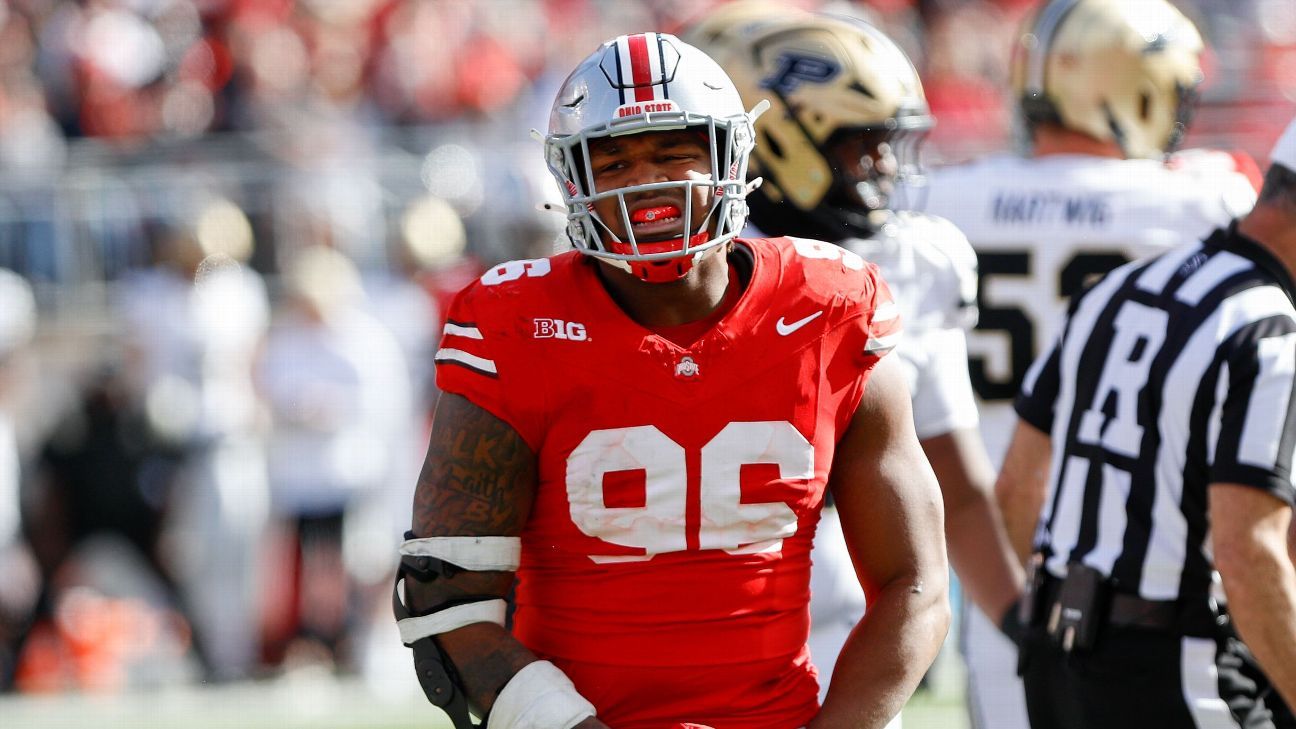The Eastbourne capacity crowd was on its feet as Serena Williams made her entrance from the tunnel to Centre Court with “What a Feeling” from “Flashdance” blaring over the sound system. She gave a wry smile and a wave as all eyes were locked on her every move.
By the time her first-round doubles match with Ons Jabeur against Sara Sorribes Tormo and Marie Bouzkova got underway , it seemed as if every cell phone camera was pointed in her direction as she served to open the match.
While that type of reception was hardly a surprise for arguably the greatest tennis player of all time and a woman with 23 major titles to her name, no one knew what to expect from the 40-year-old Williams on the court. She was playing in her first match in nearly a year, and she had skipped her practice session on site on Monday.
But on Tuesday, Williams provided some answers, and even quelled much of the doubt with an epic comeback victory, 2-6, 6-3, 13-11.
“I caught some fire behind me,” Williams said on court after the win about the second-set turnaround. “I needed that.”
Williams showed signs of rust early and her unfamiliarity with Jabeur showed. Sorribes Tormo and Bouzkova seized and rushed out to an early lead. While there were a few moments of vintage Serena greatness, including a dominant overhead smash — met, of course, by raucous applause — it looked for most of the first set as if Williams and Jabeur’s eagerly anticipated run in Eastbourne would be a short one.
There’s that Serena smash 😎@serenawilliams | #RothesayInternational pic.twitter.com/ecuABThuCd
— wta (@WTA) June 21, 2022
But neither Williams, nor Jabeur were ready to go down without a fight. Williams’ movement got sharper, her ball-striking became crisper and her confidence (and trademark intensity) to surge with every won point. By the end of the second set, Williams was everywhere on court and running down each ball as if the match depended on it.
With the ROOOOAR 🗣@serenawilliams & @Ons_Jabeur claw their way back to take the second set 6-3!#RothesayInternational pic.twitter.com/3s8JBgnCj8
— wta (@WTA) June 21, 2022
Williams hadn’t played doubles since Auckland in 2020, and last played a competitive match at Wimbledon in 2021. She had arrived at the All England Club last summer as a favorite but suffered a devastating hamstring tear in the opening set of her first match and was forced to tearfully retire. Her once-brimming-with-promise run at the tournament and quest for her elusive 24th Grand Slam title lasted just 34 minutes.
She released statements about her withdrawal ahead of the US Open and the Australian Open, citing her health. And then there was silence. The French Open came and went, and she said nothing about it. When the initial Wimbledon entry list was released she was nowhere to be found. Speculation grew about impending retirement.
“If I ever say farewell, I wouldn’t tell anyone,” she had said in Melbourne in 2021 and it seemed as if perhaps that’s exactly what happened.
But it turns out she wasn’t done just yet. Last week, it was revealed she had received a wild card to play at Wimbledon and would be playing in the doubles draw at Eastbourne.
Williams handpicked Jabeur to be her partner — something Jabeur called an “honor” and said had been in the works since before the French Open — and that felt like it could be a passing of a torch from one trailblazer to another.
Jabeur, who rose to a career-high ranking of No. 3 this week after winning the title in Berlin, owns a slew of “firsts” for players from her home country of Tunisa, as well as for Arab and African countries. Already the highest-ranked Arab player of all time, she is now tied for highest-ranked African player in history as well.
While Williams’ time in the sport isn’t over, even she can’t play forever. But in a player like Jabeur, who is paving the way for so many aspiring young players, Williams’ inclusive legacy will live on.
The pair were seen smiling and laughing on court, even during the tenser moments of the match. Both reacted to one another’s shot-making prowess with expressive, meme-worthy facial expressions and were seen high-fiving and giving supportive words after nearly every point.
“It was so much fun,” Jabeur said after the match. “I was a little bit nervous before, playing with such a legend, but she made me really good on the court. Even when I made mistakes she kept encouraging me, so thank you [Serena] for that.”
“Of course,” Williams said. “We got this.”
The duo will next face Shuko Aoyama and Chan Hao-ching on Wednesday with a spot in the semifinals on the line. Despite their success and infectious giddiness after the victory, Williams was noncommittal when asked if she and Jabeur would be playing together at Wimbledon. She perhaps summed up her overall attitude entering the tournament with her response:
“A day at a time,” she said. “A day at a time.”



